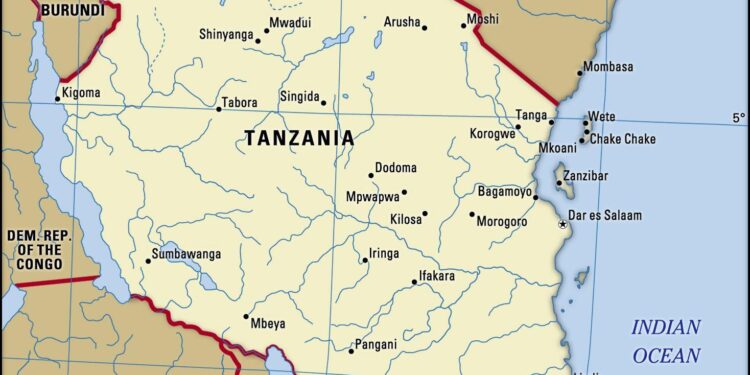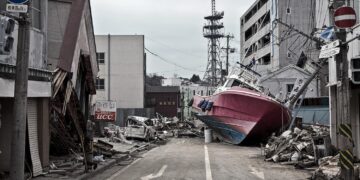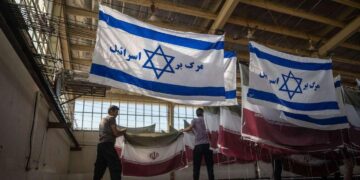Heightened Political Repression in Tanzania: Opposition Leaders Detained Amid Rising Unrest
Tanzania is currently witnessing a sharp escalation in political tensions as government authorities have detained multiple opposition figures and enforced stringent limitations on upcoming protests. This intensified suppression of dissent has alarmed human rights organizations and raised serious questions about the future of democratic governance in the country. The government’s recent maneuvers fit into a larger pattern of silencing opposition voices, fueling fears of growing political instability across East Africa. This article explores the circumstances surrounding these arrests, the official justifications provided, and their broader consequences for civil freedoms in Tanzania.
Government’s Escalating Suppression: Arrests Target Opposition Leadership
The recent crackdown has seen security agencies detain several prominent opposition leaders accused of fomenting unrest and attempting to destabilize state institutions. These arrests come amid mounting public dissatisfaction over economic hardships such as inflation and unemployment, alongside concerns about governance transparency under President Samia Suluhu Hassan’s administration. Key members from major opposition parties—known for their outspoken criticism—have been among those apprehended.
Alongside these detentions, authorities have imposed severe restrictions on peaceful assemblies, effectively curtailing citizens’ ability to express grievances publicly. Planned demonstrations addressing issues like soaring living costs and alleged violations of human rights have been blocked or dispersed, creating an atmosphere rife with fear among activists and ordinary Tanzanians alike. Observers note that this clampdown extends beyond protest control—it includes tightening media oversight and weakening civil society organizations critical to democratic discourse.
Preemptive Security Measures Ahead of Protests Amplify Tensions Nationwide
In anticipation of planned mass protests called by opposition groups seeking redress for political repression and economic woes, Tanzanian security forces have mobilized extensively across key urban centers similar to other regional crackdowns. Barricades block major thoroughfares while police patrol public spaces heavily monitored by military units tasked with preventing large gatherings.
The government also monitors digital platforms closely—especially social media channels—to disrupt coordination efforts among activists planning demonstrations. These measures contribute to widespread apprehension within communities considering participation in protests due to fears over potential reprisals or arbitrary detention.[1]
The Official Narrative Versus Critics’ Concerns
Tanzanian officials defend these actions as necessary steps to preserve law and order amid volatile conditions; however, critics argue that such tactics undermine fundamental democratic principles by restricting freedom of expression, assembly, and press independence.
Civil Liberties Under Threat: Assessing Democratic Backsliding in Tanzania
The clampdown on dissent signals a disturbing erosion of civil liberties essential for healthy democracy—including free speech rights—and raises alarms about increasing authoritarian tendencies within Tanzania’s ruling establishment.
- Media censorship: Journalists face growing restrictions limiting independent reporting;
- Bans on public gatherings: Peaceful protests are routinely prohibited;
- Dissent harassment: Activists experience intimidation tactics aimed at silencing criticism.
This trajectory threatens not only immediate political pluralism but also long-term societal engagement between citizens and their government structures.[2]
| Year | Status of Civil Liberties | Pivotal Developments |
|---|---|---|
| 2018 | Largely Stable | Tolerated minor demonstrations; relatively open media environment; |
| 2019 | Deteriorating Conditions | Sustained increase in press censorship; rising governmental control; |
| 2020–2021 | Crisis Phase | Sweeping arrests targeting opposition; prohibition on protests intensifies; |
A Regional Context: Comparing Democratic Trends Across East Africa
Tanzania’s current situation mirrors challenges faced by neighboring countries where governments increasingly prioritize regime stability over democratic freedoms—a trend exemplified recently by Kenya’s own struggles with protest-related violence.[3]
The Road Ahead: Prospects for Political Stability Amid Heightened Repression
The ongoing detention campaign against opposition figures combined with bans on civic demonstrations underscores deepening divisions between governing bodies and segments advocating reform within Tanzanian society. As international observers continue monitoring developments closely—including entities like Human Rights Watch—the stakes remain high regarding how this crisis will shape Tanzania’s democratic trajectory moving forward.
- If repression persists unchecked,
the nation risks sliding further toward authoritarianism; - A constructive dialogue fostering inclusive governance could help ease tensions;
- Civil society resilience remains crucial for safeguarding fundamental freedoms amidst adversity.
- Global diplomatic pressure may influence policy recalibration toward respecting human rights standards.















